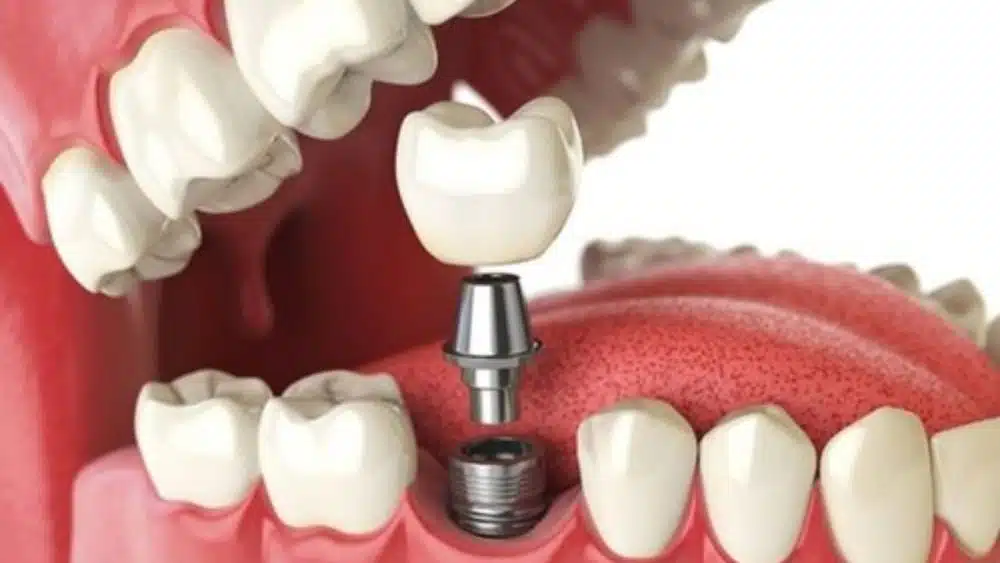Dental implants are the ideal solution for people with missing teeth or who have had extensive dental work. They are an artificial replacement for your natural teeth. They are made from titanium, a steel alloy that is stronger than gold and more biocompatible than silver. The implant is placed into your jawbone and secured in place with an anchor screw.
The procedure can be performed by almost any dentist in Turkey. The only requirement is that you must be under general anesthesia, which is usually administered using IV sedation or local anesthesia using IV medications.For detailed information, click https://dentatur.com/blog/full-mouth-dental-implants-turkey-package-deals-cost-benefits/ to read about full mouth dental implants in Turkey.
Dental implants can be composed of titanium, which is a strong metal that is biocompatible and allows your body to naturally integrate with them. They come in a variety of shapes and sizes, which may make it difficult to know if you’re getting the right implant for your needs.
How Dental Implants in Turkey Work?
Dental implants function like natural teeth by anchoring into your jawbone and providing support for your remaining teeth. The main advantage of this system is that there are no metal parts in contact with your body, meaning no sensitivity issues or rejection issues (a common problem with traditional dentures).
Another advantage of dental implants is that they help to restore your jawbone’s strength and shape and prevent further damage from occurring over time due to wear-and-tear on your remaining teeth and gums.
Things to Consider before Getting a Dental Implant in Turkey
If you’re considering dental implants in Turkey, here are some things you should consider:
How does the implant look? Dental implants come in different colors and designs, so it’s important that the dentist you choose has experience designing these types of prosthetics. Can they customize them to meet your needs? If not, find a dentist who can work with your budget and expectations.
How does the implant feel? Dental implant materials vary widely in terms of hardness and texture — some feel like real teeth while others feel like waxed paper. Find a dentist who will take the time to show you how each one feels on your mouth before committing to one type over another.
What kind of anesthesia do they use? You don’t want to wake up with a sore jaw or a headache because of the anesthesia. Talk to your dentist about their experience with this type of procedure and what type of anesthesia they use. Some dentists will only use local anesthesia while others may use general anesthesia if they feel that it’s necessary for your comfort level or if there are other factors affecting your recovery time (for example, if you have a lot of existing dental issues).
Types of Dental Implants in Turkey
Turkey is known for offering a wide range of dental implant options. However, it’s essential to note that advancements in dental technology and practices may have occurred since then. Here are some common types of dental implants that were available in Turkey at that time:
-
Endosteal Implants
Endosteal implants are the most common type of dental implants. They are placed directly into the jawbone during surgery. They resemble small screws and provide a stable base for the replacement tooth or crown.
-
Subperiosteal Implants
Subperiosteal implants are placed under the gum but above the jawbone. They are used when there is insufficient natural jawbone to support endosteal implants. These implants are less common and typically used in cases where bone grafting is not an option.
-
All-on-4 Implants
The All-on-4 implant technique involves placing four dental implants in specific locations in the jaw to support a complete arch of teeth. This approach is particularly useful for those who need a full set of teeth replaced in one or both jaws.
We recommend that you visit https://dentatur.com/treatments/all-on-4-dental-implants-in-turkey-cost-packages-procedure/ for more details regarding all four dental implants in Turkey.
-
Zygomatic Implants
Zygomatic implants are longer and are anchored into the cheekbones (zygomatic bone) when there is severe bone loss in the upper jaw. This approach allows for implant placement even in cases where there is not enough jawbone for traditional implants.
-
Mini Dental Implants
Mini dental implants are smaller in diameter than standard implants and are used when the jawbone density is not sufficient for regular implants. They are commonly used to stabilize dentures or for smaller tooth replacements.
-
Immediate Load Implants
Also known as “same-day implants” or “teeth-in-a-day,” this technique involves placing a dental implant and attaching a temporary crown or bridge on the same day. This approach can save time in the overall treatment process.



































